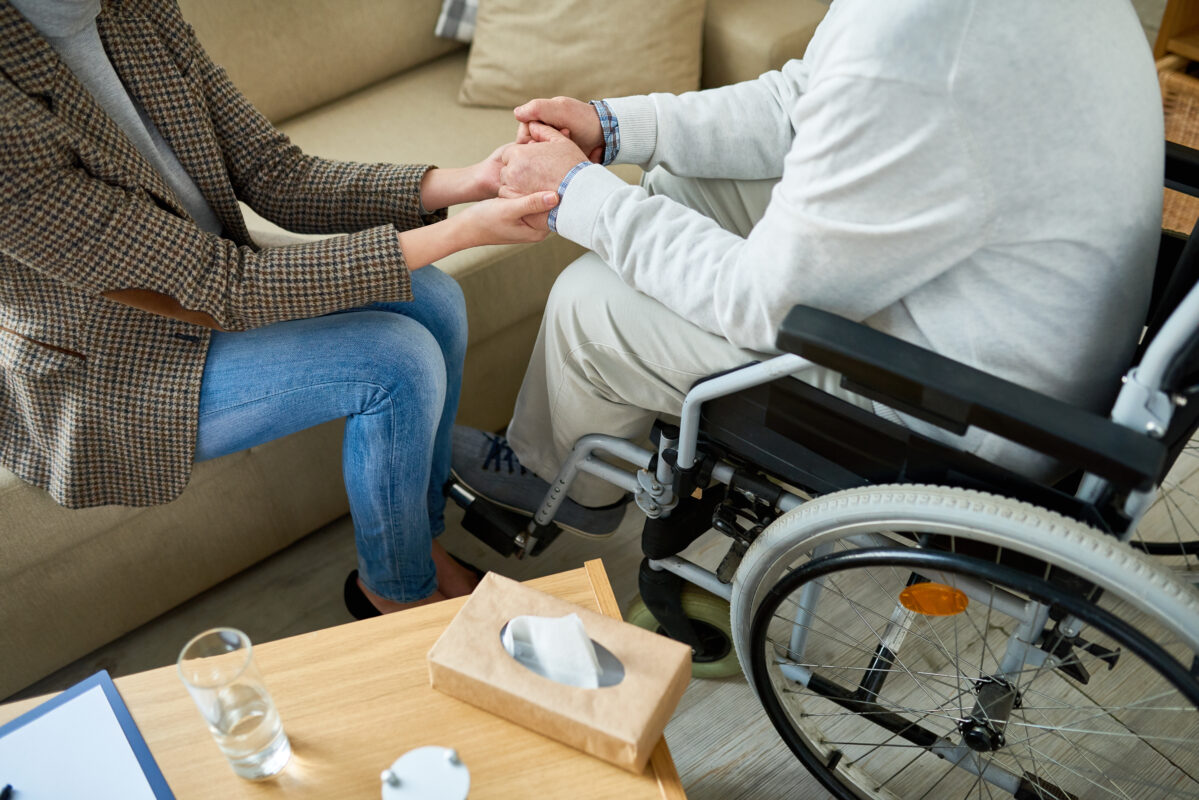Spinal cord injuries significantly impact individuals’ lives, from the person experiencing the injury and extending to their loved ones. When such a traumatic injury occurs, it’s important to tend to not only your physical health, but your mental.
What is depression?
Depression is more than just feeling “sad.” It is a medical disorder, just like diabetes or asthma.
It’s not precisely known what causes depression, but many factors are involved, like inherited traits, brain chemistry, hormones, and biological differences in the brain. Outside factors like traumatic and stressful events, like a spinal cord injury, can increase the risk of developing or triggering depression. Symptoms of depression include, but are not limited to:
- Feelings of sadness, hopelessness, or emptiness
- Loss of interest in normal activities and hobbies
- Sleep problems, such as too much or too little sleep
- Reduced appetite
- Irritable or angry outbursts over small things
- Trouble with memory
- Frequent or recurring thoughts of death
Depression is treatable and should not be neglected
If you feel depressed, it’s important to make an appointment with your doctor to get a screening. Through a combination of professional counseling, medication, and keeping a healthy lifestyle, depression can be managed. Depression should not be neglected, as it can negatively impact your life in how you feel, think, and act.
Sometimes, we feel reluctant (or even scared) to seek a diagnosis. Talking to someone you trust, like a close friend or family member, can help you start recovery.
Have a support system
Connecting with other disabled adults in your community can help you cope, build confidence, and create social connections. They can help you transition back into the community and get back into hobbies that make you happy. Programs like the Endeavor Program are designed to help people like you overcome the challenges of a spinal cord injury through mentorship, advocacy, and finding the help you need.
Resources with Delta Center
If you need help figuring out where to start on your path to recovery and mental health management, Delta Center is here to help. We provide research and referral services to help you make informed choices about your care. We work hard to ensure that the rights of people are disabilities are advocated for and met. Our services are always free to disabled adults and senior citizens who live in St Charles County, Warren County, Lincoln County, St. Louis County, and St. Louis City.

